Transforming CO2 into concrete and plastics. Designing cutting-edge green university campuses. Sourcing circular materials for consumer electronics, cleaning products and fashion. Expanding diverse talent in sustainability professions.
Those are just a few of the ambitious efforts led by the 2022 members of the GreenBiz 30 Under 30.
This seventh year of celebrating 30 young outstanding leaders in sustainability represents four continents and major cities including Amsterdam, Brussels, Hong Kong, London, Nairobi, Paris and Toronto. In the United States, they hail from Boston, Chicago, Los Angeles, New York City, San Francisco and Seattle. True to the times, several among this cohort work at home in relatively small towns for big-city offices hundreds or thousands of miles away.
They are inside corporations as varied as Bath & Body Works, Converse, Danone, Dell, General Motors, Goldman Sachs, Lineage Logistics, Primark, Procter & Gamble, Unilever, Weyerhauser and Whole Foods. Their employers make goods as varied as cars, consumer electronics, soap, yogurt and refrigeration systems. Some offer services from banking to consulting to investments in clean tech. Other honorees are influencing the business world through startups and nonprofits they have founded or through roles at the United Nations and the European Commission.
What they have in common is setting their minds to making a sustainable impact on fields as diverse as banking, fashion, food, transportation, venture capital and waste management.
We’re thrilled to present the 2022 GreenBiz 30 Under 30 below, in alphabetical order by surname. Thank you to Net Impact, the World Council for Sustainable Development and the World Economy Forum for helping spread the word and drum up more nominations than we have ever received. We’re excited to see what these individuals do next.
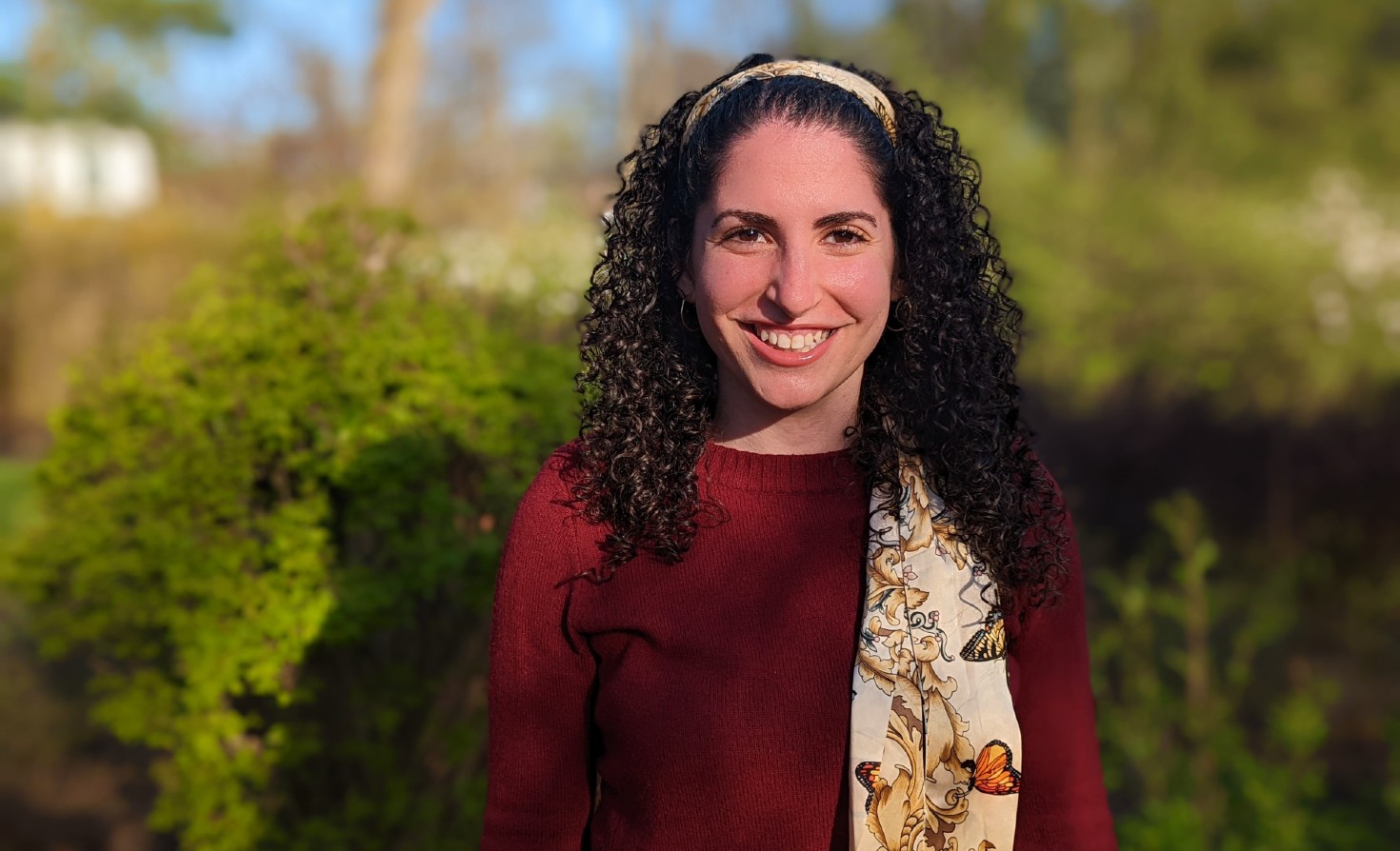
Michelle Aboodi, 28
Global Sustainability Analytics Product Manager, Converse; Boston
After graduating from New York University and working as a business coordinator for “Anderson Cooper 360” at CNN, Michelle Aboodi followed a longtime calling to help the planet. Pursuing an MBA in sustainability at Bard College, she found a passion for understanding how people consume and what they value — an insight that led her to Unilever, headquartered near her childhood home in Tenafly, New Jersey. She coordinated its social impact and human rights programs, and then pivoted to procurement.
“Procurement is really the space where you get to impact those big changes because you’re working with supply chains and suppliers,” she says. “My role in Unilever [was] getting people to think beyond their roles and broader into our supply chain, into our business, into our world.”
Aboodi developed a global sustainability dashboard highlighting the diversity and impact of the company’s sourcing — a model adopted broadly at Unilever. She’s bringing a savvy for sustainability storytelling through data to her new role at Converse, owned by Nike. Aboodi hopes to contribute to creating cutting-edge products that people want to buy, partly because they understand how they’re made.
“It’s become far too easy to just throw things away,” she says. “What I’d like to see for anything that involves production and making of things is how we can be less wasteful and more cognizant of all that we’re producing.”
— Myisha Majumder
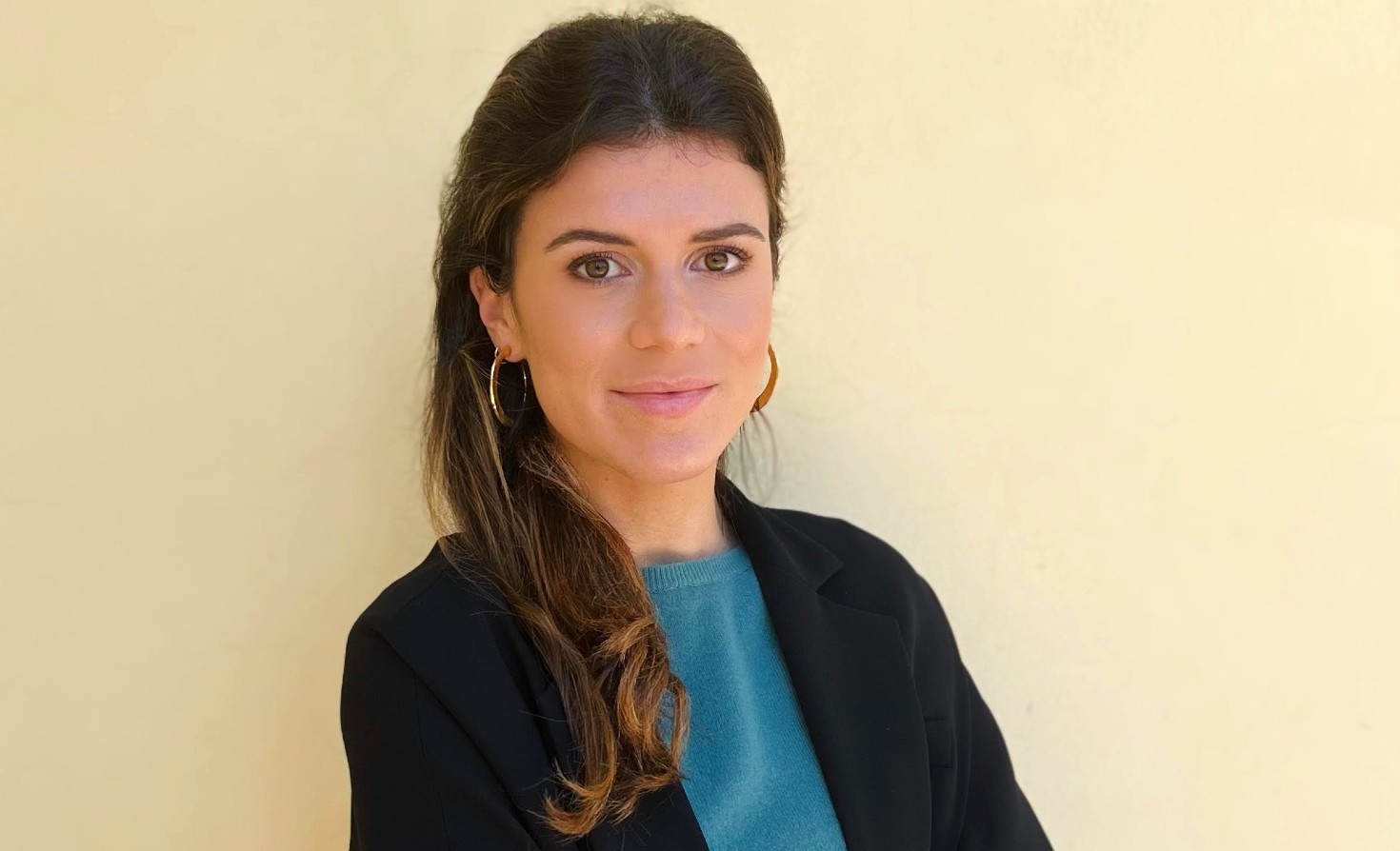
Silvia Ainio, 28
Policy Expert, Sustainable Finance, European Commission; Brussels, Belgium
Silvia Ainio’s passion for addressing environmental degradation has roots with her family in northern Italy, where she recalls her beekeeper uncle talking about decreasing bee populations. “As a kid back then, I wasn’t able to perceive the fact that humankind was having an influence on nature, and was setting nature on the wrong course,” she says.
Now, Ainio works at the European Commission on sustainable and climate finance. She was inspired by her time in Paris during graduate studies, which overlapped with COP 21, where she volunteered. She also leads the Brussels Hub of the World Economic Forum Global Shapers, a program focused on driving youth action.
Having moved between the private and public sectors, today Ainio navigates policymaking and public spending regarding sustainable finance. Her work centers ons international partnerships, helping adapt the European Union’s advanced climate and circularity policies for low and middle-income countries.
She is particularly excited to witness conversations around coming to a global agreement on what can be considered green according to each individual country’s ambitions, creating dialogues around negotiation for nation-level decisions.
— Myisha Majumder
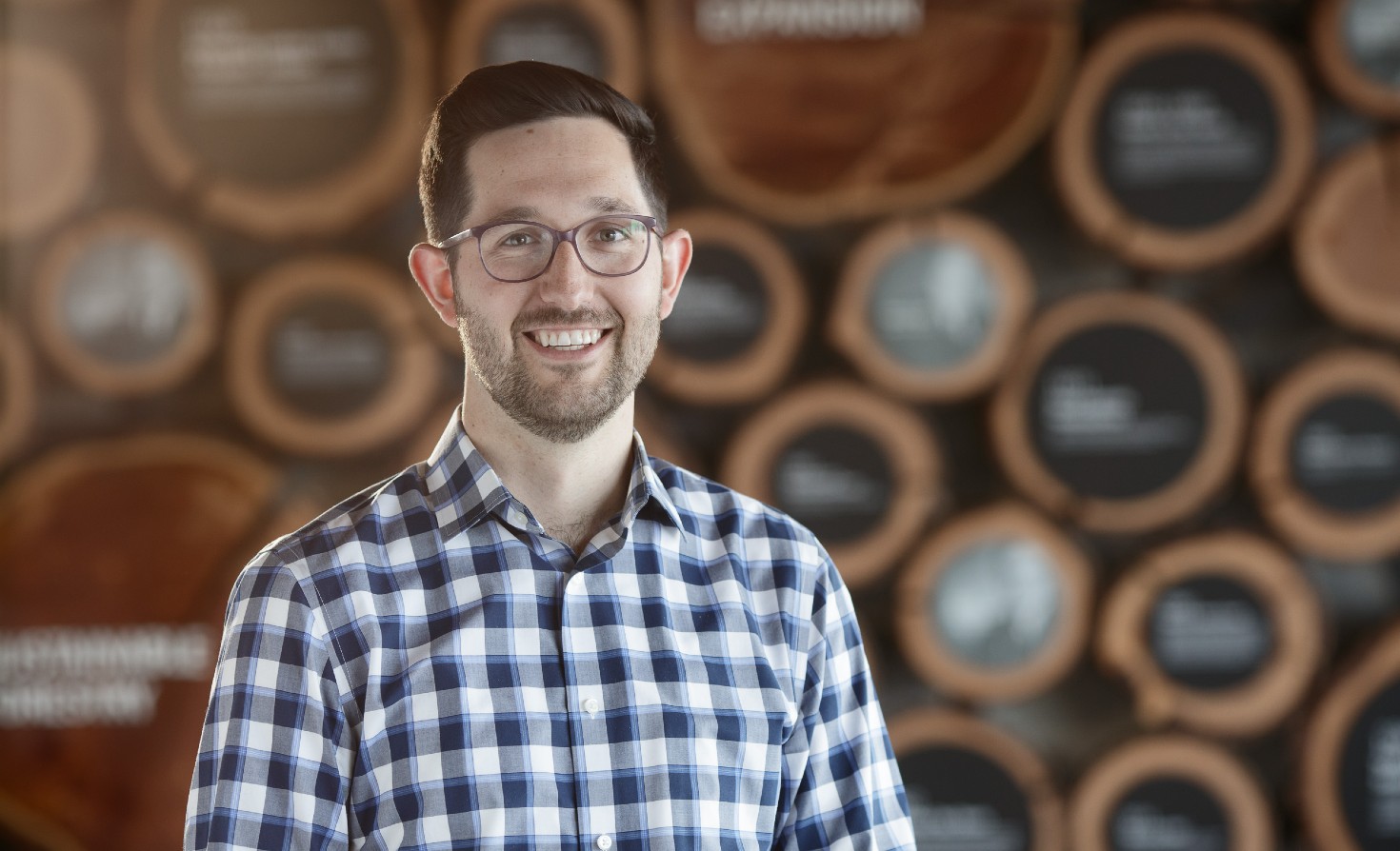
Vaughan Andrews, 28
Sustainability Analyst, Climate & Carbon, Weyerhauser; Seattle
Vaughan Andrews was inspired to pivot away from traditional engineering by an annual Bill and Melinda Gates Foundation letter that focused on climate change. “I read that letter in January 2017, and I decided that’s what I’m doing with my career,” he says. Andrews then completed a master’s in environmental science and management at the University of California at Santa Barbara, interning at timberland giant Weyerhauser along the way.
“Because of my science background, I wanted to understand what was happening on the ground, but [my graduate program] really taught us to be collaborative, and think about how not only scientists think about this but also companies and NGOs,” Andrews says.
He has since developed a niche at the papermaker, diving deep into massive amounts of data and understanding how to incorporate that into a portrait of the company’s greenhouse gas emissions, putting together its first inventory of Scope 3 emissions. Andrews is also using his unique skills to work on Weyerhauser’s “carbon record,” which assembles the company’s carbon emissions from Scopes 1, 2 and 3 and for the first time features plans for carbon removals. That’s a tall order for one of the largest landowners in the U.S., managing more than 12 million acres.
Andrews is particularly excited about designing the protocol for carbon removals and designing a consistent structure for doing so across all companies.
— Myisha Majumder
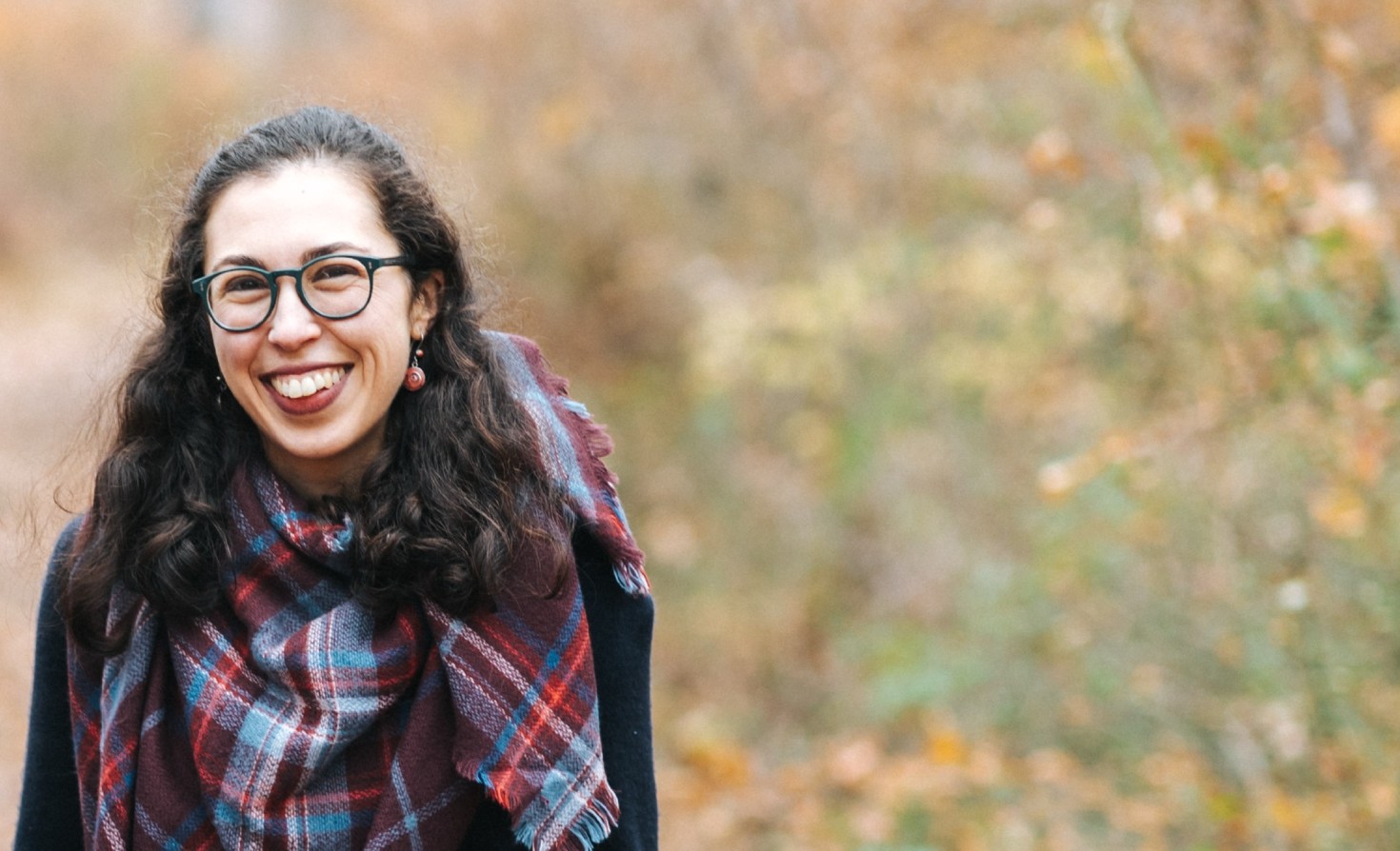
Mel Bandler, 29
Sustainable Sourcing Manager, Bath & Body Works; Bloomfield, New Jersey
Mel Bandler’s passion for sustainable agriculture blossomed in high school, when she volunteered with children at an urban farm. After college, working at Fair Trade USA, she visited coffee, cocoa, quinoa and flower growers in Peru, Ecuador, Brazil and the U.S. She heard how younger people were moving away from family farms, how traditions were being lost, and what solutions these growers wanted to keep farming viable. She also helped secure $12 million to give back to farmers, fishermen and factory workers in funds for community resilience.
“I felt like that really helped me to come back and work with the North American businesses that were looking to further invest in their supply chains,” Bandler says, referring to grocery retailers such as Whole Foods, where she helped shift its coffee line to Fair Trade certification.
Three years later, she joined the beauty multinational Estee Lauder as a responsible sourcing manager. While she worked with hundreds of suppliers on decarbonization, including on ingredients, corporate services and packaging, Bandler found that the communities most affected by climate change are often left out of the conversation.
“They don’t have a seat at the table to say, ’The temperature is getting way higher than it should be; my crop can’t grow here anymore,’ or, ‘The community has changed; my farm isn’t going to survive,’” she says.
In a new role at Bath and Body Works, one of the largest U.S. body care retailers, Bandler is helping build out the company’s sustainable sourcing strategy, a key part of its new ESG focus. She works collaboratively across its supply chain, procurement and manufacturing departments, and externally with the company’s various suppliers, to accelerate the impact of its programs.
— Holly Secon

Sophia Borroni-Bird, 29
Global ESG Engagement Lead, General Motors; Detroit
During a Fulbright scholarship in Ghana in 2016, Sophia Borroni-Bird witnessed a thriving circular economy in action. She expected to find e-waste disposal activities hurting women and children, but found instead that people were carefully keeping laptops and smartphones in circulation for many years. Borroni-Bird realized that health and safety rules need to be beefed up in these informal markets, but that secondhand electronics are also critical for many people.
“What my nine-month experience there interviewing … hundreds of repairers and also dismantlers taught me was that it’s really a huge market, where folks reuse electronics creatively, until there’s absolutely no opportunity for further repair,” says the environmental engineer.
Borroni-Bird brings that balance of technical acuity and social perceptiveness to her role leading global ESG engagement at General Motors. She started out doing environmental due diligence for the now-shuttered Maven rental car program. Now, Borroni-Bird helps the automaker meet U.S. Securities and Exchange Commission mandates for reporting ESG criteria. She also serves while serving as a companywide sustainability ambassador, elevating stories about her colleagues’ work toward sustainability.
Borroni-Bird hopes to merge her technical prowess and engagement skills with work in public policy, staying on at GM this fall while pursuing a masters in public policy at the University of Michigan. She finds inspiration in the European Union’s regulations promoting clean mobility, product circularity and chemicals safety — trends that she sees as relevant for the transportation industry’s path to a low-carbon future.
“What’s really exciting to me is that we’ve seen this huge evolution in the way people can think about mobility, that I hope will propel more innovation,” Borroni-Bird says.
– Elsa Wenzel
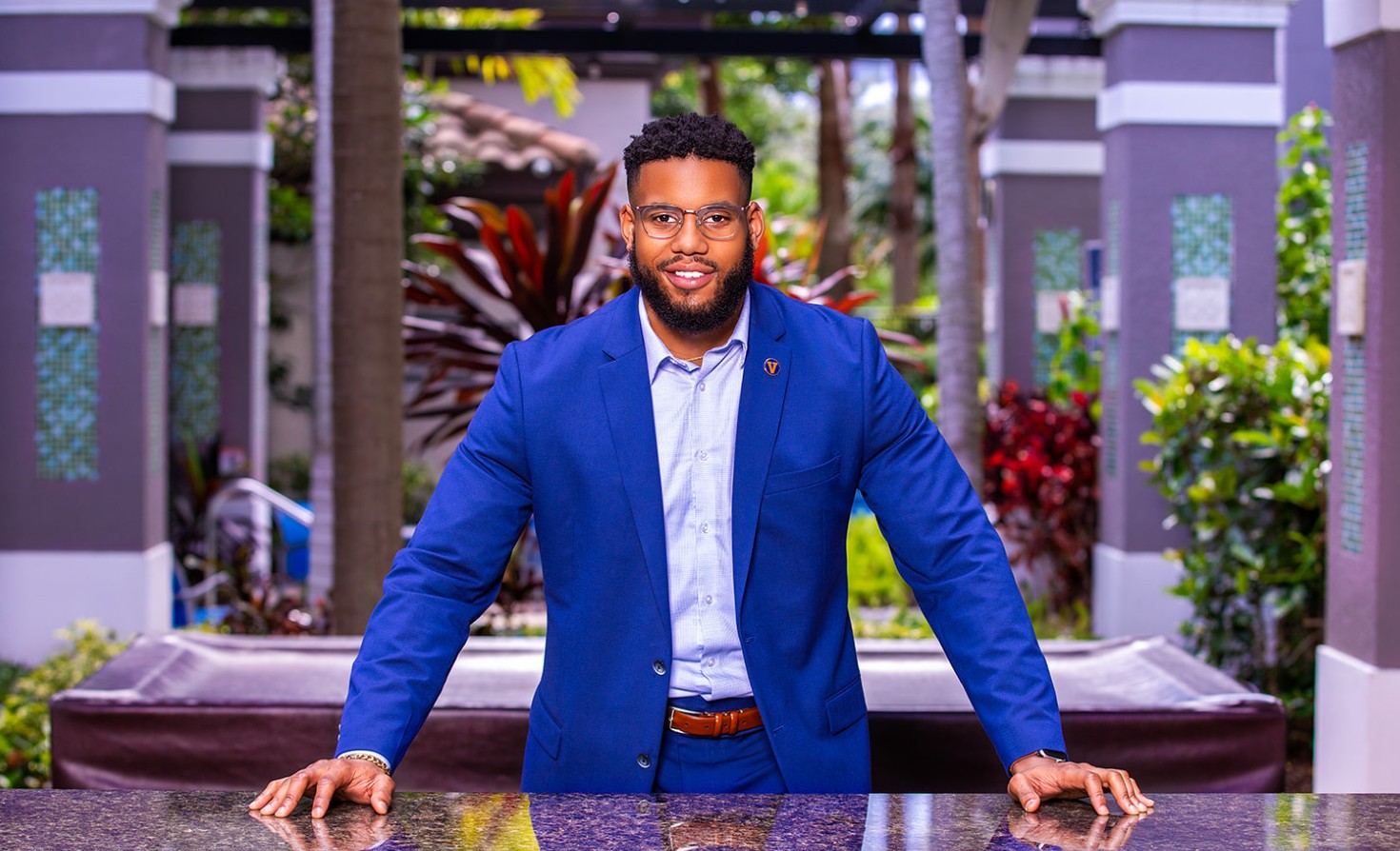
Miles Q. Braxton, 25
Incoming Director, Risk Management, Summit Ridge Energy; Co-founder and Director of Strategic Partnerships, BlackOak Collective; Fort Lauderdale, Florida
During his last year studying environmental science and engineering at the University of Virginia in Charlottesville, Miles Braxton applied for 72 positions and landed just four interviews. This experience, he believes, was a symptom of the lack of diversity in the U.S. energy sector.
Six months after graduation, he secured a full-time job in business development at Sol Systems, a Washington, D.C., solar developer that prioritizes equity in project decisions. The first thing he noticed: A lack of Black talent.
Two years later, Braxton was hired to bring his hands-on experience in financial modeling and array design to the Goldman Sachs Renewable Power Group, where he managed the $3.2 billion insurance program behind its 900 solar-plus-storage assets. In his two years in that role (Braxton starts a new job this week), he coordinated and negotiated coverage for about 770 megawatts in solar capacity and roughly the same amount in battery storage, saving “a lot of money” in the process.
He’s eager to pay his early success forward. While participating in a Yale University clean energy certificate program two years ago, Braxton was encouraged to share career advice to students of color. That became one catalyst for co-founding BlackOak Collective, a networking initiative that connects Black environmental professionals in the D.C., Maryland and Virginia region, where Braxton spent his formative years.
One big focus of BlackOak: Surfacing employment opportunities at every career stage and helping corporations build a pipeline of Black talent. “I have a very dear motto to me, and it’s very prevalent in the Black community as well: Lifting as we climb is something that I take to heart,” he says.
— Heather Clancy

Shaandiin Cedar, 29
Associate, Powerhouse Ventures; Oakland, California
Shaandiin Cedar spends her days “writing checks and making bets” at Powerhouse Ventures, one of a handful of pre-seed and seed stage cleantech funds, and one of the only women-led ones.
Her role on the investments team involves deploying the firm’s second $74 million fund into energy, mobility and climate startups at their earliest stages.
Working in venture capital wasn’t in Cedar’s plans until the Powerhouse Ventures opportunity presented itself and tantalized her with the potential for working on climate solutions.
As a woman of color, Cedar says she relishes the opportunity to “work with a team of other women VCs to, quite frankly, shake up industry standards, and help evolve it for the better.”
Cedar, a Diné (Navajo) tribal member, is also a dot-connector and ad hoc adviser when it comes to corporate sustainability, cleantech, Indigenous organizations and tribal projects. “I’m learning to embrace that there’s not a lot of Indigenous people in our space,” she says. “And I have that kind of unique connection with both sides there.”
For nearly five years, Cedar has been involved with NativesOutdoors, which has the mission to empower Indigenous communities through its products and storytelling for a sustainable world.
“It really marries my identity with environmental and social sustainability and grassroots work,” says Cedar, who has worked in the corporate sustainability space (including six years at GreenBiz), which can be very top-down.
— Deonna Anderson

Roxane Clement, 26
Global Sustainability Senior Manager, Dairy Category, Danone; Paris
Roxane Clement realized how important food was at an early age. Her father was a chef, and her family moved around among Paris, Tokyo and Orlando, Florida, where she saw firsthand how cooking, culture and health were intertwined.
Clement always knew she wanted to work in the food industry, and after studying business took a marketing job at food and beverage leader Danone, excited to bring health through food to people around the world. She came to realize the way food is made is just as important.
“You can’t just focus on human health,” Clement says. “It has to be multifaceted. And it has to make sure that our planet is healthy. If our environment is not healthy, people cannot be healthy.”
After spending seven months in Bangladesh setting up Grameen Danone, which developed a vitamin-rich yogurt sourcing from local micro-farms, she switched into a sustainability role at Danone. Today, she implements the company’s dairy sustainability strategy while understanding shifting consumer expectations about the environmental impacts of packaged goods. She works with Danone and its subsidiaries, Actimel, Activia, Danonino and YoPro, on regenerative agriculture, CO2 emission reductions, circular packaging and food waste reduction.
Speaking Spanish, French and English, Clement often finds herself acting as a translator between the sustainability and business worlds. For example, when talking about how yogurt can boost immunity, she’ll explain the links between immunity and planetary health. Traveling around the world to work on sustainability helps her bring this “bigger societal impact” to life. “It’s my guiding line throughout everything that I did,” she says.
—Holly Secon

Sydney Covey, 27
Senior Manager of Sustainability, STRUCTR Advisors; Chesapeake, Virginia
Sydney Covey grew up in the small coastal Virginia farming and fishing town of Mathews. Taking care of the land was important, as her own family raised pigs, goats, sheep and chickens. But when Hurricane Isabel nearly destroyed her town in 2003, “I saw the force of Mother Nature and was like, we should really take this thing seriously,” she says.
Covey dedicated her education to earth science and business, and interned with Hourigan Construction, which was building the Brock Environmental Center, a cutting-edge green building. Hourigan’s CEO asked Covey to write a job description for a new sustainability position for herself, which she started days after graduation.
She leads sustainability at his consulting company, STRUCTR Advisors, working with clients, engineers, architects and contractors to design more sustainable buildings across the East Coast. Covey has worked on million-dollar-plus projects, with goals including net-zero energy and LEED certification, and has helped to certify over 3 million square feet of sustainable building space.
“What we’re doing today in designing construction is going to have an impact on the next 200 years’ worth of people that will walk through this space,” Covey says.
Beyond her daily work, she serves on the U.S. Green Building Council Virginia’s Market Leadership Advisors Board, and was appointed by her mayor to the Chesapeake Environmental Improvement Council. As a part of her passion for equity, Covey is a board member and adviser on affordable and sustainable housing projects for the nearby Saint Paul’s Community Development Corporation.
—Holly Secon

Ashley Fill, 28
Director, Sustainability and Whitespace; Procter and Gamble Home Care Canada; Toronto, Canada
Ashley Fill is working on one of the toughest problems in sustainability — getting consumers to behave more sustainably with the products they buy.
At Procter and Gamble, Fill looks for the win-win-wins for sustainability, P&G and the buyer. She led a project with Walmart to communicate, through signage and packaging, the water conservation of using the dishwasher over handwashing (15 liters per cycle vs. 15 liters every two minutes) as part of a sustainability marketing campaign for its Dawn and Cascade dish soap. She is also tackling the brand’s circularity strategy for Swiffer, Mr. Clean and Dawn packaging.
Fill has moved up quickly into the role created for her, one of Procter & Gamble’s few dedicated sustainability leaders, while pursuing a masters in sustainability leadership at Cambridge University. She says it’s her duty to drive business leaders toward the necessary changes to reach the company’s targets of net zero by 2040, and by 2030, fully recyclable or reusable packaging and a 50 percent reduction in virgin plastic.
“I want this natural capital in my life,” she says. “The ability to do good and look back on the history of my career and be like, ‘Yes, I did something that wasn’t just selling stuff; I also created a little bit of a change here and there. And at least tried my very best to do my part within this economic model.’”
— Jesse Klein

Jacob Gisler, 29
Senior Program Manager of Compliance, Whole Foods Market; San Clemente, California
Jacob Gisler started 2022 at a new company and in a new role in sustainability, moving from Chipotle to Whole Foods Market. At the burrito maker, Gisler was part of a small team helping to create annual sustainability reports and calculate greenhouse gas inventories. He helped to outline its first science-based targets and created a first of its kind in-app emissions tracker for menu items in online orders, comparing Chipotle’s sourcing standards to conventional ingredients. His goal was to turn the usual 120-page sustainability report into something consumers could use to make informed choices.
At Whole Foods, Gisler will be at the forefront of sustainability’s transition from voluntary to regulated. He is helping Whole Foods navigate the confusing path forward by ensuring its retail stores are in keeping with local environmental laws and preparing for natural gas bans, solar requirements and other construction regulations to come into effect in various locales.
Gisler will draw on his background doing the nitty-gritty sustainability work at Chipotle to help Whole Foods’ compliance department understand the climate side.
“I’m hoping to bridge the gap between the amazing sustainability efforts that our sustainability team is working on with the built environments,” he says. “Working as a liaison between our development team and our construction team and our sustainability folks.”
— Jesse Klein

Jeanette Mwendwa Gitobu, 27
Director, Women in Wind Global Leadership Program, Global Wind Energy Council; Nairobi, Kenya
When Jeanette Mwendwa Gitobu was 8, she had to learn how to “bend in the wind but never break, like bamboo,” she says of moving from Zambia to Cambodia, a country with few English-speaking or African families.
Learning to adapt has served her well, especially during a career move from the oil and gas industry to renewable energy. Out of college, Gitobou worked for a Kenyan pipeline company and later for Shell. Today she leads a program that accelerates women’s careers in the wind industry in Africa, Asia and Latin America with the Women in Wind Global Leadership Program, which responds to the need for greater diversity in clean energy. Gitobu supports women’s pathways to leadership in the male-dominated wind industry, and fosters a global network of mentorship and empowerment.
Gitobu previously worked at Windlab, a global renewable energy developer. She received McKinsey’s Women’s Achievement Award for her work there signing up 1,700 landowners onto a 90-megawatt, $150 million project in Kenya — Africa’s first hybrid renewable energy plant, combining wind turbines, solar panels and battery storage.
Gitobu loves sharing experiences with “incredible women” about what it’s like to often be the only woman in a room full of men. That has helped her articulate ideas and strategies in a way that can be understood, “not because I am a woman but because I am a knowledge leader and have authority on those ideas.”
Luck, preparation and a desire to serve — learned from her parents — are what got Gitobu into renewable energy, she says. Gitobu, an avid paraglider, dreams of one day leading the World Bank.
— Meg Wilcox

Sandra Gonza, 29
Impact Program Manager, Global Fashion Agenda; Amsterdam, Netherlands
When Sandra Gonza joined the Global Fashion Agenda (GFA) as its circular fashion partnership project manager in 2020, she wanted to continue to advance sustainability in fashion, an industry she connected with early on with her designer mother. Growing up in Tanzania, she saw the benefits and challenges of fashion companies sending their unsold goods to another country.
“They’re a huge part of the local economy in terms of the resale of them and some local upcycling that happens, and I think that’s the positive side,” Gonza says. “The other side of it is that it also does take away from developing some of the local fabric manufacturing or local fashion industry.”
At GFA, Gonza focuses on increasing environmental and social sustainable solutions for fashion brands and reducing their harmful impact.
She has led, coordinated and analyzed progress for GFA’s Circular Fashion Partnership, its cross-sector project in Bangladesh to reduce the use of virgin materials. It helps partners — brands such as H&M and Benetton, recyclers such as Cyclo and Worn Again and manufacturers such as Ecotex and Northern Group — set up the necessary infrastructures to turn post industrial textile waste into recycled materials.
Within a year and a half, the project has recycled over 1,000 tons of textile waste, a success that Gonza seeks to replicate and scale elsewhere.
One of her biggest ambitions is to help end modern slavery. “We saw what happened in Rana Plaza,” she says of the 2013 fatal garment factory collapse. “How do we not make the same mistakes? How do we not create another Bangladesh with another Rana Plaza?”
— Deonna Anderson

Eva Grundon, 26
Environmental Sustainability Coordinator, Primark; London
Eva Grundon says her path to becoming the environmental sustainability coordinator at Primark, a mass fashion retailer headquartered in Dublin, started when she was born into a family that owns and runs a waste management company in the United Kingdom.
She wanted to reduce waste without working in waste management directly. “I didn’t think working in waste is very glamorous, and I love fashion,” Grundon says.
Studying at the Condé Nast College of Fashion & Design in London, she wanted to learn about both the waste and textile industries so she could combine the two in her career.
Today, Grundon helps suppliers across Primark’s supply chain to identify and adopt circular practices, including transitioning to sustainable materials.
Last September, the company launched its Primark Cares strategy toward sustainability and circular practices, hinging on three pillars: improving people’s lives; protecting life on the planet; and giving clothes a longer life.
“I’m proud to be involved with changing the way our supply chain operates, and directly contributing towards our ambitious strategy and goals,” Grundon says.
She led efforts establishing the “planet” pillar, to halve the company’s carbon footprint, eliminating non-clothing waste and restoring biodiversity.
As Grundon continues her fashion career, one of her main ambitions is to change how people and companies view waste, seeing it as a valuable resource instead of a product or material that no longer has use.
— Deonna Anderson

Chante Harris, 28
Director of Climate Investment and Partnerships, Venture For ClimateTech; SecondMuse; New York City
Chante Harris comes from a family of problem solvers and public servants. Her grandmother was a civil rights activist; her father a firefighter and mother a medical caregiver. Harris always knew she wanted a job that would have impact. By working where finance, tech and climate meet, Harris has brought public service to the private sector.
At SecondMuse, a company that invests in impactful technologies, Harris works with founders of climate technology companies on their go-to-market and fundraising strategies, including Seed Renewables, an investment platform for climate tech, carbon feedstock company Mars Materials and hydrogen startup Alchemr. Harris helped Voltpost, an EV charging startup for cities, raise $1.3 million in pre-seed funding.
New York City Mayor Eric Adams appointed Harris to the Climate Center Advisory Committee on Governors Island in New York Harbor, tasked with guiding climate solutions meant to create 7,000 jobs there. Harris will help identify the best climate tech companies and organize testing, pilots and demos.
Harris also runs the Women of Color Collective in Sustainability, supporting more than 1,200 women directly and 4,000 more through social media. At the height of COVID, Harris launched the Collective Resiliency Fund to support women in sustainability through grants.
“We tend to silo the climate justice conversation from climate, finance and investment, when in my opinion, they’re one and the same,” she says. “If we don’t fund and scale diverse solutions, we actually aren’t finding the best solutions. We need everyone to solve the climate crisis.”
— Jesse Klein

Joshua M. Hellman, 24
Chief Executive Officer and co-founder, Green Bank of Colorado; Castle Rock, Colorado
Not many 24-year-olds can say that they started a bank, especially one that fights climate change. But when Joshua Hellman was in college and learned how the biggest banks in the world are continually investing in fossil fuel projects, he wanted a better option and decided to do something about it.
After graduating from the University of Colorado at Colorado Springs with a bachelor of innovation in business — the only business-accredited innovation program in the world — and receiving a Trueblood Innovation Collaboratory Grant from the University of Denver as seed funding, he started to bring his vision to fruition in the form of the Green Bank of Colorado. The Colorado native wanted to give members of his community the opportunity to put their money in a safe place and have it finance local air quality, waste management, wastewater, solar, wind and energy efficiency projects.
Hellman says he considers himself an optimist who believes “people are hungry to be part of the solution,” he says. “If we have the institutions for them to utilize, they’ll use those.”
Hellman has received more funding from other private investors, and the bank expects to receive its state charter this year. He is working to set up its “Colorado Green Economy Membership,” which helps businesses and consumers unlock savings and discounts for green purchases and offers a suite of financing products for businesses to grow sustainable operations. He is also looking to expand to other Western states; the Green Bank of Arizona, Green Bank of Texas and Green Bank of California are in their early stages.
— Holly Secon

Claudia Herbert Colfer, 27
Program Manager, United Nations Global Compact Network USA; New York City
At her German high school in Lima, Peru, Claudia Herbert Colfer was president of the Model United Nations team. Several years and a couple of degrees later, she’s running programs at U.N. Global Compact USA to encourage more than 900 of the world’s biggest companies to embed the U.N. Sustainable Development Goals into their operations.
Through the programs and public-private partnerships she’s created, Herbert Colfer has been instrumental in helping large private sector players — such as Microsoft, Facebook and 3M — identify sustainability priorities and reduce emissions.
She started her career at the United States Council for International Business (USCIB), creating public-private synergies between American companies and international organizations such as the U.N. and the Organization for Economic Cooperation and Development (OECD).
Herbert Colfer describes her career as mission-driven, bringing people together around social and environmental sustainability.
In December 2020, she helped found the World Economic Forum Global Shapers Hub in Queens. Earlier that year, she founded Wasi, a free app that provides users with ideas of how to donate, contribute and volunteer remotely. To date, it counts more than 1,000 users in 20 countries.
Splitting time between England and the U.S. while pursuing a master’s degree in global thought at Oxford University, Herbert Colfer dreams of launching a sustainable business one day and improving access to education in Peru.
“People in the [sustainability] space care a lot about space, but once you go out into the real world, people don’t understand, aren’t aware, don’t want to be aware,” she says. “We need to work through that; it’s all about collaboration.”
— Natali Zuckerman

Raven Hernandez, 26
Co-founder and CEO, Earth Rides; Nashville, Tennessee
Nashville isn’t the first place most entrepreneurs would launch an all-electric ride-share service, but Raven Hernandez is prioritizing access to zero-emissions transportation in communities often overlooked by the clean economy movement, starting with her hometown.
Another reason Tennessee was chosen for the Earth Rides headquarters: Four major EV manufacturers are producing cars there, making it the leading Southeast state for related jobs.
A first-generation American raised by a Panama-born single mother, Hernandez graduated high school at 17, was the first in her family to attend university and earned her Pepperdine University law degree just six years later. She made an abrupt U-turn into electric vehicles after a personal health crisis opened her eyes to the effects of environmental pollution on the human body. Earth Rides was born during an extended vacation to Indonesia, Australia and Hawaii with husband and co-founder Peter Smith.
Unlike most widely used ride-share services, each Earth Rides driver can operate either as a W-4 employee or a 1099 contractor. “Our first focus is fair, living wages to our drivers, really,” Hernandez says. “That’s where I find equity.”
In 2021, its first year of operations, Earth Rides accommodated more than 115,000 passengers with its all-Tesla fleet and booked $1 million in annual revenue. As the service expands into Austin, Texas, and a planned three to five other cities over the next year, it’s evaluating other EV models such as the Polestar 2, Ford’s Mach-E and the Nissan Leaf. To accelerate that push, the startup recently used crowdfunding to raise more than $1 million, and Hernandez anticipates closing a Series A round this summer. “Beyond the expansion, I want to double down on the focus of getting individuals into EVs affordably,” she says.
— Heather Clancy

Sabeeha Islam, 27
Senior Manager, Portfolio Development for Climate and Transportation; Munich Re Ventures, San Francisco
Sabeeha Islam helps derisk emerging climate change technologies at Munich Re Ventures, the venture capital arm of the world’s largest reinsurer. Specifically, she helps climate tech startups grow through strategic business opportunities and partnerships, after they’ve received capital from Munich Re Ventures, a fund with nearly $1 billion in assets under management.
“Oftentimes people don’t realize that insurance companies are some of the most keen to see the advancement of climate technologies … because they’re existentially threatened by climate change,” she says.
Islam’s interest in innovation was piqued when she worked at a University of Texas cleantech incubator. Later, she and her brother started a newsletter, Emergence Industries, exploring developments in decarbonization, the industrial economy and social access. Out of college, her passion for climate change led her first to work for the climate consulting group NG Impact.
The daughter of Bangladeshi immigrants, who put herself through college, Islam says she’s drawn to solving inherently interconnected and systemic problems — which she approaches first with empathy. “The greatest thing I’ve learned is that when you’re able to truly understand where someone’s coming from [and] what’s driving their issues … that’s when you can be really effective,” she says.
In the future Islam envisions transitioning her role to climate solution services, or to enabling implementation through “derisking the adoption of climate change solutions.”
She is keenly interested in the just transition and draws inspiration from her faith. “Being a Muslim is about being a steward,” she says. “There’s this notion of, ‘I have to take care of this world … because it’s a gift from God.’”
— Meg Wilcox

Alex Laplaza, 27
Partner, Lowercarbon Capital; Palo Alto, California
Raised in Spain’s Basque country and Long Island, New York, Alex Laplaza’s interest in clean energy and climate tech was sparked six years ago in rural Indonesia, during a Fulbright Program project into the water, energy and food security nexus. It was reinforced by an internship at ReNew Power, the largest renewable energy company in India.
Already inclined toward a career of service — both of Laplaza’s parents work with children facing severe physical disabilities — these experiences honed his interest in climate tech.
While earning his master’s degree in energy and the environment from Stanford University, Laplaza was introduced to the world of venture capital. Although he was studying policy, he saw the role VCs can play in scaling solutions.
After hearing about a job opening with high-profile, early-stage VC firm Lowercarbon Capital, Laplaza became its first full-time hire, starting as an analyst and rising to partner in less than two years. He has helped deploy more than $300 million in capital to startups focused on slashing new emissions and sucking up CO2.
Lowercarbon’s dozen-person team considers investment propositions collaboratively, but Laplaza, who has visited nearly 50 countries and speaks English, Spanish, French and Indonesian, is particularly interested in opportunities beyond North America and Europe. “These are the fastest-growing markets in the world, and these are markets where the economics make sense for things like renewable energy technologies. They will win, outright, and in doing so, you avoid entrenching, embedding, building in assets that will last decades, like new coal plants or other types of polluting industries.”
— Heather Clancy
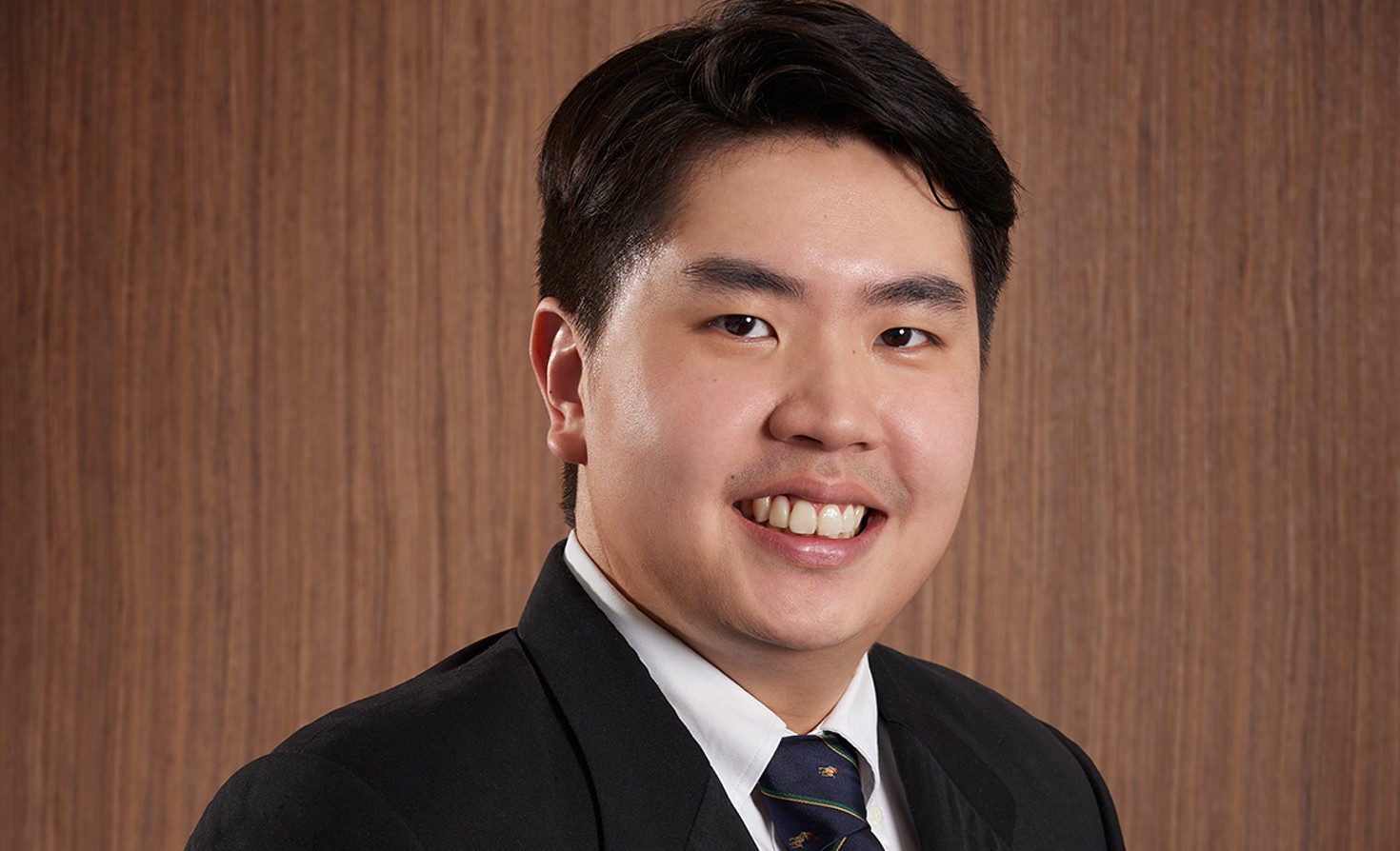
Justin Chongyi Lee, 29
Associate Director, TRIREC; Singapore
Justin Lee masters entrepreneurship in all aspects of his life. When he isn’t nurturing startups at TRIREC, a Singapore-based cleantech venture capital firm, he’s helping his wife run her pet store. Outside of his day job, Lee has served as a mentor to startups through various programs, such as the Shell Startup Bootcamp, and has spoken at a number of industry events.
He has been at TRIREC more than six years, initially as an intern after studying accounting at Nanyang Technological University. Lee took a leap of faith in 2015 to raise its first fund with seasoned investment professionals. “There are a lot of naysayers here in this part of the world, especially back in 2014 and 2015, because the [cleantech VC space] just wasn’t that mature,” he says. “We overcame that.”
Just as Lee aspires to become an even better mentor, including by coaching students in track and field at his Singapore high school alma mater, he has been hands-on with portfolio companies, packaging products by hand for a vertical farm startup when it couldn’t afford additional workers.
Lee is poised to apply his willingness to buck the status quo and his attention to detail with investments to continue to lead and grow the cleantech space in Singapore.
— Myisha Majumder

Cosmo Lo, 27
Circular Economy Senior Manager, Sustainable Office Solutions Limited; Hong Kong
Cosmo Lo is passionate about reshaping business practices into sustainable and circular economic systems in Asia. He’s building circular economy systems at Sustainable Office Solutions, a startup that helps high-end businesses in Hong Kong, Singapore and Shanghai divert office furniture from landfills by refurbishing what’s no longer wanted or donating it to NGOs and local markets.
The first-of-its-kind enterprise addresses a critical need in a business culture accustomed to buying — and importing — new office furniture every few years, simply to change the color or style, Lo says. In less than a year, he’s helped divert 400 tons of furniture waste in Hong Kong, preventing roughly 1.5 million tons of carbon from being emitted.
Hong Kong’s recycling industry is still “immature and informal,” and it can take a lot of persuasion to convince clients to refurbish their furniture, says Lo, but he enjoys unlocking challenges.
Previously, he managed the Drink Without Waste Working Group, which convened senior officials in government, the beverage industry, NGOs, recyclers and retailers to craft a producer responsibility scheme for Hong Kong, and is now under consideration by the legislature.
As a boy, Lo attended an elite Jesuit school in Hong Kong, whose priest co-founder taught about social justice and the “importance of being with your community and in nature,” rather than “leading a fancy lifestyle,” he says. Lo has volunteered at a homeless charity ImpactHK since then and made the environment his career.
“I enjoy working with people from different backgrounds,” including those who are seen as “the biggest polluters,” he says. “You need to sit down with them to have constructive dialogue” to make change.
— Meg Wilcox

Hardik Miyani, 27
Senior Energy and Commissioning Engineer, Baumann Consulting; Chicago
Hardik Miyani dreamed of becoming an astronaut and studied math to pursue an astronautical engineering degree. But during college in Mumbai, he learned more about climate change and connected it to his experiences. “In India, we see so many natural calamities — floods, tsunamis, everything like that,” Miyani says. He realized a different calling, to cut emissions here on Earth.
Miyani determined that the biggest opportunity to combat climate change was through energy efficiency. He came to the University of Illinois at Chicago for a master’s in energy engineering and stayed in the city as an energy engineer at Baumann Consulting. His projects involve retrofitting large commercial spaces, calculating monetary paybacks and emissions reductions of energy-saving measures, and designing their implementation. The new equipment he helped deploy in one building, as an example, generated an energy savings equivalent to taking nearly 50 cars off the road for a year.
Educating others about sustainability is another passion for Miyani, who holds certifications including Certified Passive House Consultant, and LEED Green Associate. In grad school he mentored other students, then later ran a statewide training program with the Illinois Green Building Alliance.
Describing himself as a “curious guy,” Miyani spends his free time learning about new technologies that accelerate energy efficiency and teaching himself to play an electronic drum kit.
— Holly Secon

Adam Mohabbat, 28
Senior Manager, Market Development and Public Policy, EVgo; Los Angeles
Adam Mohabbat defines his life’s passion as a blend of two criteria: democracy and climate, which he credits in part to being raised by parents who came to the United States as refugees from Afghanistan.
At EVgo, he has developed a reputation as one of the nation’s leading advocates for electric vehicle charging infrastructure, leading the company to expand across the West Coast and engaging with utilities, regulators and community stakeholders. Mohabbat encourages internal conversations about what equity means for EVgo, both within the company and for its business model. EVgo recently entered a partnership with the city of Portland, Maine, with a special focus on providing charging hubs to neighborhoods with a high percentage of multifamily buildings.
With the industry showing rapid growth, helped by President Joe Biden’s $1 billion infrastructure law, Mohabbat also serves as the chair of the Electric Vehicle Charging Association. The Angeleno has helped expand its scope beyond California.
Mohabbat leverages his policy background, which includes internships with Rep. Nancy Pelosi and the Embassy of Afghanistan, as well as his personal background to encourage internal conversations about what equity means for EVgo, including expanding electric vehicle infrastructure for diverse communities. “What’s important is lifting as you climb,” he says.
— Myisha Majumder

Holly Moynahan, 28
Sustainability and ESG Manager, Hubbell Incorporated; Boston
Early last year, Holly Moynahan stepped into the first sustainability job in the 130-year history of Hubbell Incorporated, a $10.6 billion company that designs, manufactures and sells utility and electrical equipment. With many utilities as customers, it has a big role to play in enabling the grid’s transition to renewables. “It makes it a bit daunting sometimes,” says Moynahan, who approaches her work as “a choose-your-own destiny situation.”
So far she has implemented a new data management software system to track sustainability progress, expanded her team, and managed decarbonization projects across the 19,000-person company. The latter projects include helping facilities replace HVAC systems with more energy-efficient models to cut emissions and lower costs, or developing companywide training on ESG topics.
“You can really get to know a company and understand their inner workings and start to talk to people,” she says of spearheading Hubbell’s first sustainability report.
Driving an influential company’s ESG initiatives, performance and reporting is a dream job for Moynahan, who spent five years in sustainability consulting, both at boutique firms and at EY, yet she felt she could make a bigger impact within a corporation.
Growing up in a family of bankers in Miami, she knew the corporate sector had a great deal of power. The outdoor lover recalls visiting coral reefs with her father, who mourned their bleaching and degradation. That left Moynahan determined to protect the environment for the rest of her life.
— Holly Secon

Kyle Ritchie, 29
Education Market Sustainable Design Lead, CannonDesign; St. Joseph, Michigan
Kyle Ritchie wants to see his work taken apart. Spearheading sustainability efforts for higher education campuses at the forward-thinking Chicago architecture firm CannonDesign, he advocates for projects to follow circular principles of eliminating waste, keeping materials in use and regenerating natural systems.
“Being able to participate in the disassembly or deconstruction of a building that I originally helped design, and find new uses for those materials, I think would be kind of the icing on the cake for my career,” he says.
Ritchie, accredited in green buildings frameworks including LEED for Building Design and Construction, WELL and EcoDistricts, says he enjoys exploring cutting-edge concepts in university projects, including the Johns Hopkins University’s Applied Physics Lab and the University of Chicago’s new cancer center, which embraces the concept of “biometric design” to support human health and productivity. A project for St. John’s University in New York City will use geothermal energy.
Ritchie describes being a “sleeper agent” for sustainability, helping clients to think beyond green building checklists to understand the financial benefits across the life cycle of a building or campus. Sustainability may not even enter the conversation. “Once we explain that there’s a real monetary value to utilizing the circular economy in our project, it’s not talking about sustainability; it’s talking about outcomes,” he says.
Ritchie, co-author of the book “Circular Economy for Dummies,” also seeks to evangelize circular principles to the general public through his new Circular Economy Studio side effort and “Don’t Call It Sustainable” podcast. His next big side project is launching a commercial building materials reuse platform, MarkIt Zero.
— Elsa Wenzel

Brennan Spellacy, 27
Co-founder and CEO, Patch; San Francisco
Brennan Spellacy doesn’t believe in doom and gloom. When he and co-founder Aaron Grunfeld started to build Patch, which is on a mission to scale the carbon removal industry, they began to ask themselves what would have to happen to meet the goals of the Paris Agreement. The answer: to reach a net-zero future, achieved mostly by decarbonization.
Patch’s API-based solution enables companies to embed carbon footprint estimation and removal directly into their digital products and experiences. It has partnered directly with a variety of carbon credit developers including CarbonCure, Dodo and Living Carbon, which either sequester or avert carbon emissions through methods including reforestation and direct air capture.
Living in western Canada after studying chemical engineering at McGill University, Spellacy hoped to work in renewable energy but found few opportunities. After web developer stints including at Shopify, he wound up at hospitality startup Sonder, where he helped to grow the company from 15 to 1,500 people and met Grunfeld.
More than 90 companies use Patch’s service, including Afterpay, Farfetch and smaller startups. Its approach is attracting attention in high places; Spellacy recently met with U.S. Climate Envoy John Kerry alongside Salesforce co-founder Marc Benioff to discuss climate innovations.
As the CEO of the two-year old company, which raised nearly $21 million in venture capital in September, Spellacy is setting the longer-term vision of the business and recruiting to expand its 50-person team.
— Deonna Anderson
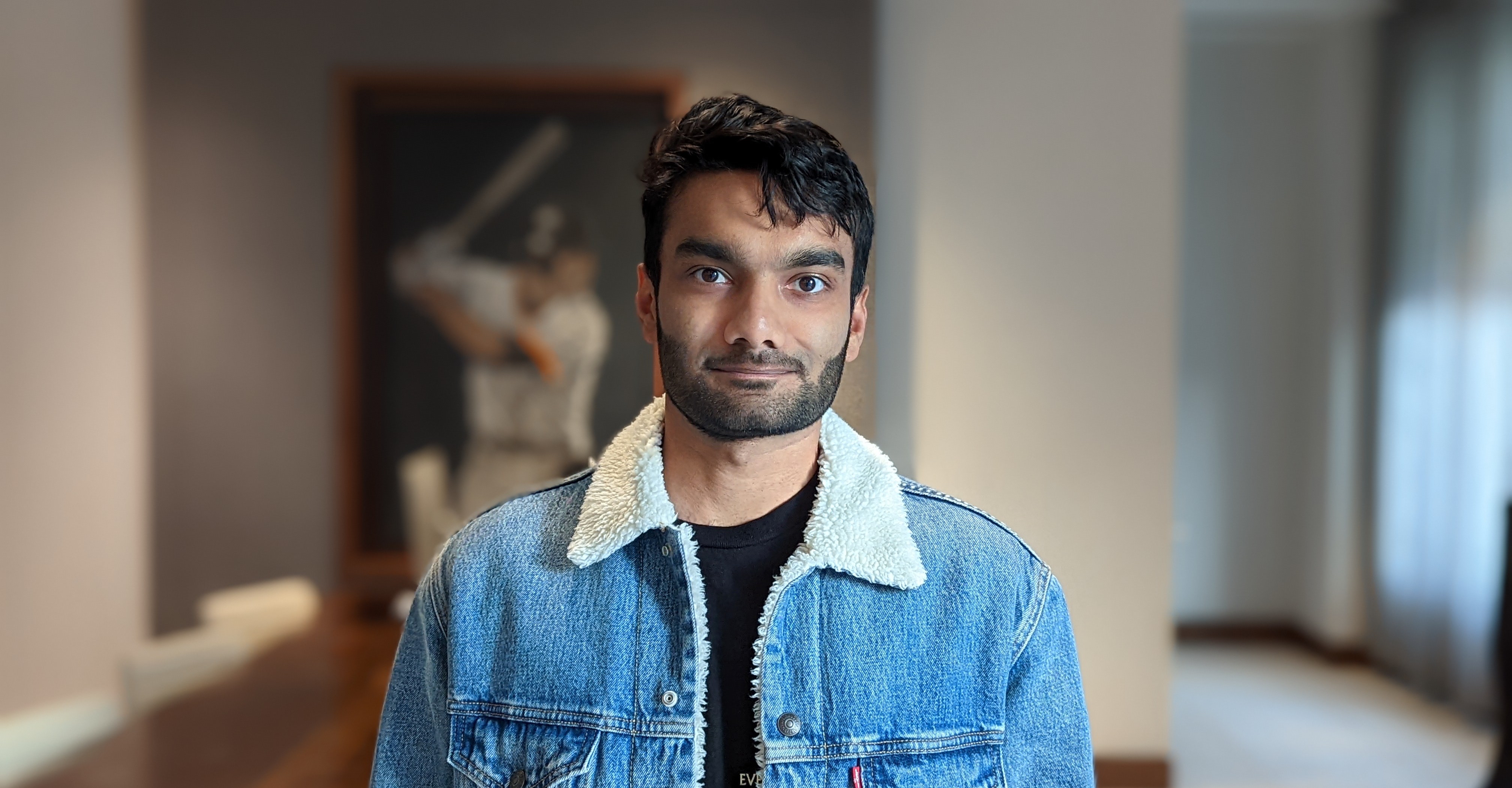
Jash Vora, 23
Technical Project Manager, Lineage Logistics, San Francisco
On the data science team at Lineage Logistics, the world’s largest cold storage logistics company, Jash Vora tackles one of the biggest challenges in energy systems. Transporting everything from fresh food to medicines and vaccines is necessary to keep the global population fed and healthy — but freezing and shipping them at ultra-low temperatures requires vast amounts of energy and amounts to roughly 7 percent of global greenhouse gas emissions.
Vora coordinates and executes innovative energy projects across Lineage Logistics’ 400 cold storage facilities in 20 countries. One project involves transforming a Lineage warehouse into an industrial microgrid. Another deploys robotic forklifts in warehouses.
“By virtue of working with the R&D group, I work on projects that have oftentimes never been implemented anywhere else before,” he says. “There’s no blueprint for the kind of stuff we do.”
Internally, Vora also assists with the company’s sustainability program, helping push Lineage last year to become the first cold storage company to sign the Climate Pledge and commit to net-zero carbon emissions by 2040.
Vora grew up in Mumbai in a family of engineers. As he became aware of the coal plant pollution around him, he sought to work on clean energy systems, so he studied energy engineering at the University of California at Berkeley, spending summers on energy projects at Centrica and the U.S. Department of Energy.
— Holly Secon

Allison Ward, 26
Senior Sustainable Materials Engineer, Dell Technologies; Northville, Michigan
Allison Ward, a University of Michigan-trained materials science engineer with a master’s in industrial operations focusing on supply chains, came to Dell as an intern between degrees. Her project: sourcing ocean-bound plastics from Southeast Asia for Dell’s product packaging.
That set the template for Ward’s career. She joined the computer giant’s environmental affairs team working on closed loop materials including plastics, aluminum and rare earth magnets, sourced from used IT goods. Four years later, in the experience design group Ward is driving materials circularity across procurement, supplier quality, marketing, sales and legal teams while reaching out to suppliers to ensure flows of recycled materials.
Working remotely from Michigan for the company based in Austin, Texas, she’s pursuing “open loop” collaborations with other industries, such as sourcing carbon fiber from aerospace companies and figuring out how to source enough scrap of various other materials to feed into new products.
Ward helped develop Dell’s first deep baseline understanding of ingredients used in everything from an enterprise server to a mouse, essential for Dell’s 2030 goal of 50 percent recycled or renewable content in its products. In recent history, about 5 percent of Dell tech contained recycled or renewable content (up to about 15 percent for laptops, 95 percent of which are recyclable), she says. Successes include developing grades of plastics with 50 to 70 percent recycled content. Not enough spent plastic is available now. Highly recyclable steel, aluminum and copper pose another challenge, Ward says.
She admires Goodwill Industries, both for her own eclectic thrift shopping there and for its work partnership through the Dell Reconnect PC takeback program. Ward dreams for every shred of a used product to eventually find a new home.
— Elsa Wenzel

Peter Zhou, 29
Product Development Lead of Composites, Carbon Upcycling Technologies; Calgary, Canada
Peter Zhou is on the cutting edge of carbon removal technologies. He leads the polymer engineering and advanced materials team at Carbon Upcycling Technologies, a Canadian clean tech startup that embeds captured carbon dioxide emissions into products including concrete and plastics.
Zhou joined the startup as an intern in 2018 and was instrumental in securing a $20 million NRG Cosia Carbon XPRIZE for breakthrough technologies and helping the company grow from a single founder into a 10-person organization poised to launch high-performance, carbon negative and completely biodegradable plastics.
Zhou says he feels called to solve materials challenges and chose this path while reflecting on how to leave his mark on the world as a chemical engineering graduate student. Sustainability, he determined, would keep him “intrinsically motivated as an individual to keep doing good.”
“To me sustainability isn’t just about CO2, but it’s about better quality of life for everyone on planet Earth,” he says, noting that many around the world struggle with access to clean water and energy, while he has been fortunate to live in Harbin, China, and Calgary, Canada.
A serial entrepreneur, Zhou also developed a social networking app that connects seniors aging in place to volunteers to help them get the resources they need, and Green Mesa, an alternative measurement solution to quantify greenhouse gas and toxic emissions from turbines and engines used in oil and gas, construction, marine vessels and the power industry.
— Meg Wilcox
Credit: Source link



